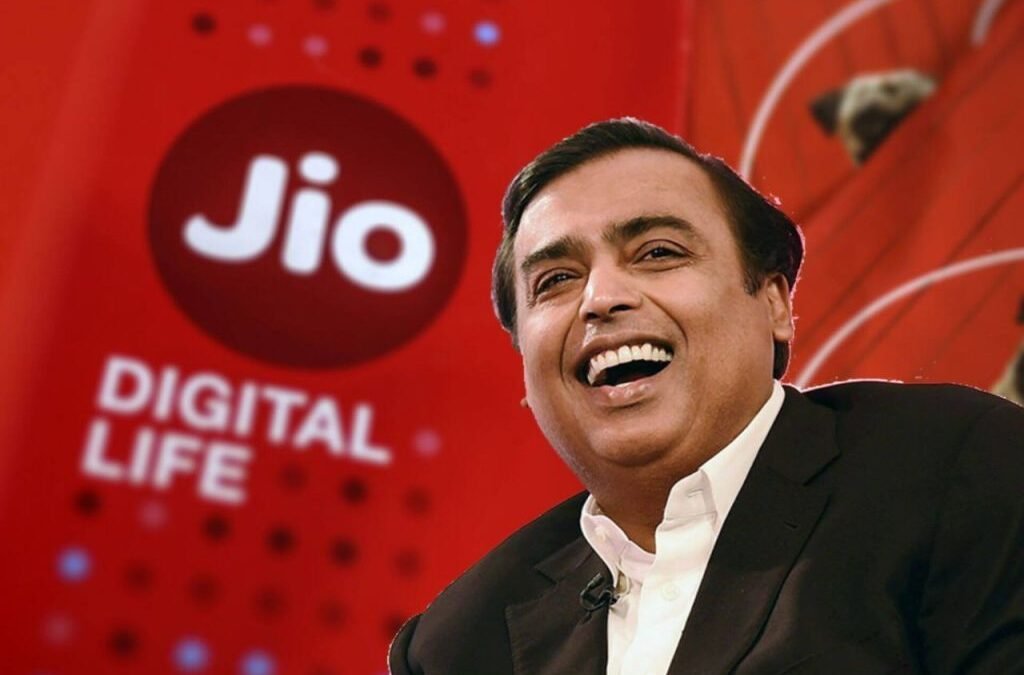Over the last decade, India’s telecom sector has undergone significant transformations, including aggressive competition, rapid digitization, and increased data consumption. This report compares two major telecom companies based on their recent performance and key developments.
Industry Overview
India’s telecom industry plays an important role in connecting people and supporting the country’s digital growth. With affordable mobile services and rising smartphone use, the sector has grown rapidly.
Companies are focusing on expanding their networks, improving internet speed, and launching 5G services. The industry is regulated by TRAI and is seeing strong growth in data usage as more people use the internet for work, entertainment, and communication.
Below are the two leading telecom companies which are growing rapidly. Lets compare them to know about their performance. With market capitalization of Rs. 18,57,873.17 crore, Reliance Industries (JIO) Ltd is trading at Rs. 1,372.90, and Bharti Airtel Ltd, with market capitalization of Rs. 10,66,863.91 crore, is trading at Rs. 1,871.
About the companies
Airtel, headquartered in India, is a leading global communications provider with over 600 million customers in 15 countries across India and Africa, as well as operations in Bangladesh and Sri Lanka.
It is India’s largest integrated communications provider and one of the world’s top three mobile operators. Its offerings include 4G/5G mobile, high-speed broadband, entertainment, digital payments, and enterprise solutions such as cloud, cybersecurity, and IoT. Airtel also offers passive infrastructure services through its subsidiary, Indus Towers Ltd.
Jio, founded in 2016, is a leading technology company in India known for developing its own advanced digital infrastructure. It deployed the world’s largest LTE and VoLTE networks before quickly launching 5G using in-house technology.
Jio also owns the most 6G patents and developed its own software systems. With a strong presence across India, it now provides cloud, gaming, and digital solutions to businesses and consumers. Jio, which transformed the market in 2016, is now shaping the future with its 5G technology.
Comparison of Q1 Financial Results
In Q1FY26, Bharti Airtel Ltd reported Revenue of Rs. 49,463 crore grew by 28.5 percent year-on-year from Rs. 38,506 crore in the same quarter previous year. JIO showed a growth of 19 percent, with revenue rising from Rs. 29,449 crore to Rs. 35,032 crore.
Jio’s EBITDA Increased by 24 percent yearly from Rs. 14,638 crore to Rs. 18,135 crore whereas Airtel’s EBITDA grew by 41.2 percent from Rs. 19,944 crore to Rs. 28,167 crore. Similarly, Jio’s EBITDA margin stands at 51.8 percent as compared to the 56.9 percent of Bharti Airtel.
Jio’s net profit increased by 25 percent from Rs. 5,693 crore to Rs. 7,110 crore yearly. Whereas Bharti Airtel’s net profit rose by 57.31 percent from Rs. 4,718 crore to Rs. 7,422 crore.
Operational Highlights
As on June, 2025, Bharti Airtel has a total customer base of 43.61 crore in India whereas Jio has 49.81 crore. Average Revenue Per User (ARPU) of Airtel stands at Rs. 250 per month with 18.1 percent growth yearly whereas Jio’s stands at Rs. 208.8 per month with 14.91 percent growth.
From Q1FY25 to Q1FY26, Airtel’s total data consumption increased from 1,878.9 crore GB to 2,284 crore GB, reflecting a growth of approximately 21.5 percent. During the same period, Jio’s data consumption rose from 4,410 crore GB to 5,470 crore GB, marking an increase of about 24.1 percent. As of June, 2025 Per capita data consumption of Airtel is 26.9 GB, whereas Jio is 37 GB.
Conclusion
Both Bharti Airtel and Reliance Jio performed well in Q1FY26, with consistent growth in revenue, profits, and data usage. Each company has unique strengths such as Jio in scale and technology, and Airtel in profitability and ARPU, making them both appealing investment opportunities based on their respective strategies and goals.
Written by Akshay Sanghavi
Disclaimer

The views and investment tips expressed by investment experts/broking houses/rating agencies on tradebrains.in are their own, and not that of the website or its management. Investing in equities poses a risk of financial losses. Investors must therefore exercise due caution while investing or trading in stocks. Trade Brains Technologies Private Limited or the author are not liable for any losses caused as a result of the decision based on this article. Please consult your investment advisor before investing.
The post Airtel vs Jio: Which One Should You Buy After Q1 Results? appeared first on Trade Brains.

